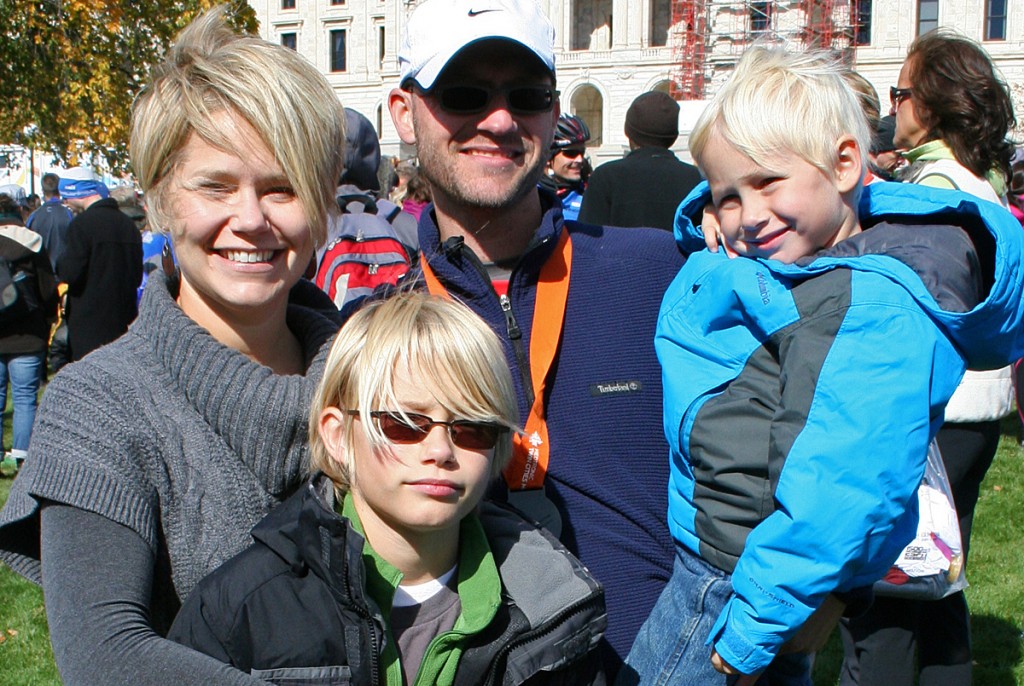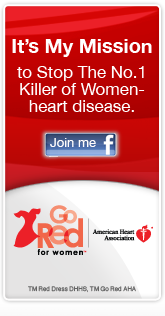This post has been a long time coming. Various titles have floated through my head, my favorite alternate being “B is for Bat-Shit Crazy.”
I can’t talk enough about depression and heart disease because it is definitely not talked about enough. It is a big deal. A huge deal. A BFD as Joe Biden might say.
So why do we leave the cardiac ward with prescriptions for three different blood thinners, beta blockers, statins, and nitro, but not Celexa? Appointments for rehab but not a counselor, support group, or maybe even a shrink?
I don’t know, but it is time that changed.
I can write this now because I can tell I’m finally coming out of the fog of my second-surgery, just-short-of-a-heart-attack episode or whatever we want to call it. It was a long slog, for which I was remarkably unprepared, despite a year of learning and writing and talking about heart disease.
To recap, I was a little low because:
- Despite a year of living healthfully, taking my drugs, avoiding fat, eating fiber and antioxidants, exercising like a madwoman, learning and speaking out and doing everything right, my body managed to lay down plaque at an alarming rate, clogging up my LAD (that’s the widowmaker, friends) up to 80 percent.
- I no longer am a person who had a freak heart attack at age 37 but look-at-me-I-run-marathons now. I have heart disease, aggressive premature vascular disease, and endothelial dysfunction. I might be fine, but I will never be well.
- I will never run another marathon. I didn’t get to run the one I was on week 13 of 16 weeks of training for either.
- I can’t have any more babies.
- What I can have: more drugs, more angioplasties, more stents, and someday, when I’m really lucky, bypass.
As my brother so aptly put it after his own heart attack, at age 32 and three weeks before my episode: Well, shit.
 The race I didn’t run.
The race I didn’t run.
Depression in heart attack survivors is common, and it is dangerous. We’ve covered this before:
Harvard Medical School reported that half of all heart attack survivors become depressed and the American Heart Association reports that women, and particularly younger women, are at an even higher risk. What’s more, those who do become depressed are at a greater risk of another heart attack.
“People with post–heart attack depression are two to three times more likely to have another heart attack or to die prematurely compared with survivors who don’t have depression.” (September 2011)
This time around, my depression took on a new character, and it took a while to call it for what it was. This time, the signs were:
- Weight gain (um, this is a tad counterproductive, no?)
- Lack of interest in exercise (see above, weight gain)
- Lack of interest in cooking or planning for healthy eating (do we see a pattern here?)
- Inability to concentrate or finish things
- Obsessive behavior (hit refresh on Twitter feed for three hours anyone?)
- Tears
- Abandonment of my blog (sorry blog)
And here’s how I knew that it was depression: I knew that if I lost (or at least not gained) weight, I’d feel better. I knew that if I exercised, I’d feel better. I knew that if I wrote, I’d feel better. But I still could not do it. Could. Not. It is terrifying to be so totally out of control of both your body and your mind.
It got better, and it gets better. I’m at least back to the gym and even a little writing and I’ve managed to follow-through on a surprising amount of holiday preparation. Some of this happened because time heals. Some of it because I have amazing friends. Some happened because of Celexa. And some of it happened through sheer force of will.
But it — depression — will likely happen again, just as I’m likely to be in the cath lab or cardiac ward again (and again). It will happen to another woman, and another, and another. She should know that she’s not bat-shit crazy. That she needs help, deserves help, and that it ought to be there waiting for her.



I have never had heart issues, but I have had depression, and it saddens me that more doctors don’t work on treating the ENTIRE person… I’m sorry you’ve had to go through this, but I’m so glad you found help and are starting to see a little bit of light at the end of the tunnel. Wishing you all the best!
Thanks Jen for writing about this serious topic. You are so right – we are discharged from CCU with a prescription for cardiac meds – but rarely one word about what is very likely to hit us like a ton of bricks once we get home and the initial denial/shock of the cardiac event begins to wear off.
Mayo Clinic cardiologists put the likelihood of post-cardiac event depression even higher than the Harvard stats – up to 65%, and then they add an even more frightening stat: that fewer than 10% of these cases are appropriately identified. That’s a lot of heart patients out there suffering in silence, trying desperately to put one foot in front of the other despite their feelings of despair.
It struck me recently, when I attended a talk given by Alaska cardiac psychologist (and more importantly fellow heart attack survivor) Dr. Stephen Parker, how openly and straightforwardly he speaks about his own severe depression during the seven years since his first heart attack. Dr. Steve describes the “swirling emotions” that so often accompany a heart attack like this:
“Relief at survival — disbelief and anger that it happened — grief for everything that has and will be lost — gratitude to those who helped — extreme vulnerability in a previously safe world — fear of what the future might bring. A heart attack is a deeply wounding event, and it is a wound that takes a long time to recover from, whatever the treatment.”
I was further struck listening to Dr. Steve’s presentation by the difference between his public talks and mine. He is quite open about discussing his own personal experience of depression, while I rarely if ever even mention my own devastating experience during my presentations about women’s heart health. Yet I’ve written a lot about heart disease and mental health issues on my blog, but for some reason when I’m facing groups of real live women, I have not said a word – the subject of mental illness still carries such a major stigma.
But if WE are not talking (and writing) openly about our personal experiences, how is that stigma going to ever be addressed, and how are women going to find out how common and dare I say “normal” this post-MI condition actually is? When Canadian journalist Jan Wong wrote about her own experience of depression, she suggested that patients be reassured upfront that not only is depression not shameful, but that it is temporary and can be treated and will get better. How reassuring would THAT have been to hear when we left hospital?
I’m a big, big fan of talk therapy for depression associated with heart disease as we get help sorting out the many little pieces broken apart by our cardiac events. Seeing a professional therapist was the smartest thing I ever did after my heart attack and I now recommend it to ALL survivors.
I’m very glad that you’re not still feeling ‘bat-shit crazy’ these days, Jen.
regards,
C.
Many of my previous homecare patients that I would see post CABG surgery, would be at home, improving health wise, but were feeling really down and they couldn’t understand why. I even had a spouse ask me if people had personality changes when they had heart surgery. Great post Jen.
I hear you 100%, actually 10000%. Vilunteer and supporting other heart patients does help me, but there is always this “I will always be different” or “I will never be able to do that”. I don’t know what to do to get out of the rutt either, but I do know Holidays are a bit harder.
Thanks for your honesty, Jen. This post may have been hard for you to write, but it will help others.